44 reading food labels for cholesterol
Reading Food Labels | ADA - American Diabetes Association The Nutrition Facts labels on foods are really the key to making the best choices. We'll cover the basics so that these labels make shopping easier for you. You've heard it all. From carb-free to low-carb, to whole and empty carbs, it's hard to know what it all means. Blood sugar highs and lows aren't always easy to understand. Food Labels: Fat & Cholesterol | Home & Garden Information Center Limit these sources of unhealthy fat and cholesterol in the list of ingredients: animal fat (beef, ham, pork, bacon, lamb, chicken, turkey), lard, hardened fat or oil, egg and egg-yolk solids, cream, butter, whole-milk solids, palm oil, palm kernel oil, hydrogenated vegetable oil, vegetable shortening, coconut, coconut oil, and cocoa butter.
PDF A Guide to Reading Food Labels - University of Rochester Understanding the Percent Daily Values (% DV) on a food label can help you choose foods high in good nutrients and low in bad nutrients. The % DV is based on a 2,000-calorie diet. If you eat less than 2,000 calories a day, your daily value may be lower than what is listed on the label. If you eat more than 2,000 calories a day, your daily valu...
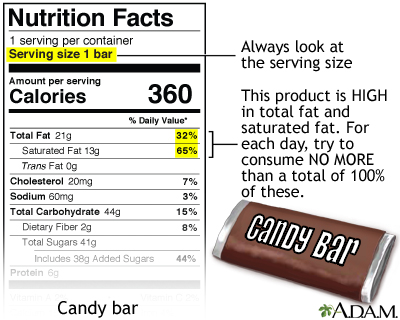
Reading food labels for cholesterol
A Real Person's Guide To Reading Nutrition Labels Most nutrition labels list total fat, saturated fat, and trans fat. Ideally, you want to make sure that you eat foods that are low, or completely free, of trans fats and saturated fats. Trans fat is added to processed, packaged foods like cookies and crackers. Reading food labels: Tips if you have diabetes - Mayo Clinic Reading food labels: Tips if you have diabetes. Food labels can be an essential tool for diabetes meal planning. ... Nutrients and Daily Value: The label must list the amounts of total fat, saturated fat, trans fat, cholesterol, sodium, total carbohydrate, dietary fiber, sugars, protein, vitamin D, calcium, iron and potassium that are in one ... How to Understand and Use the Nutrition Facts Label | FDA Feb 25, 2022 · People look at food labels for a variety of reasons. ... The following label-reading skills are intended to make it easier for you to use the Nutrition Facts labels to make quick, informed food ...
Reading food labels for cholesterol. How To Read Food and Beverage Labels - National Institute on Aging Although frozen and canned fruits and vegetables have food labels, fresh varieties often do not. You can find nutrition information for fresh vegetables and fruits on the USDA website. Or you can call the U.S. Department of Agriculture's Food and Nutrition Information Center at 301-504-5414. Understanding percent Daily Value (% DV) How to Read Food Labels : Food Network | Food Network The percent of the Daily Value that is listed on the upper portion of the food label is yet another way to gauge how much saturated fat and cholesterol are in the foods that you buy and eat. If a... Understanding Ingredients on Food Labels | American Heart ... There are many terms used for sugar on food labels. You might see sugar listed as the fourth ingredient in a product and think it's not so bad. But sugar can also be listed as high-fructose corn syrup or corn syrup, agave nectar, barley malt syrup or dehydrated cane juice, to name just a few. Read more about sugar and sweeteners. How to read food labels | healthdirect Energy: A kilojoule is a measure of energy. To lose weight, you need to eat and drink fewer kilojoules (kJ) than you use. You should limit your intake of discretionary or junk foods — i.e. those that have more than 600kJ per serve.
How to Tell if Foods Are Low or High Cholesterol - Verywell Health Each food label should include milligrams (mg) of cholesterol per serving. Don't forget to look at the serving size as well. Sometimes products can seem low in cholesterol, but if you eat more than the recommended servings at one sitting, then you can end up consuming a lot more cholesterol than you intended. Percent daily value - Canada.ca cholesterol; carbohydrate; fibre; potassium; sodium; The % DV for a nutrient is calculated by: dividing the amount of a nutrient in a serving size by its daily value, then; multiplying that number by 100; For example, a food product has 3 mg of iron. The daily value for iron is 14 mg. This means that the % DV for iron would be 21%. How to read food labels: MedlinePlus Medical Encyclopedia If a label says that a food has 100 mg of sodium, this means it has about 250 mg of salt. You should eat no more than 2,300 mg of sodium per day. This is the amount of sodium that is in 1 measuring teaspoon of table salt. Ask your health care provider if you should have even less. The % daily value is included on the label as a guide. Palm oil - Wikipedia Food producers are required to list the specific type of vegetable fat used, including palm oil. Vegetable oils and fats can be grouped together in the ingredients list under the term "vegetable oils" or "vegetable fats" but this must be followed by the type of vegetable origin (e.g., palm, sunflower, or rapeseed) and the phrase "in varying ...
Consumer Research on Labeling, Nutrition, Diet, and Health Results suggest that search for total fat, saturated fat, and cholesterol information on food labels is less likely among individuals who consume more of the three nutrients, respectively. Easy Guide to Understanding Food Labels When You Have High Cholesterol ... Including wholegrains such as brown rice, wholemeal bread and oats, as well as nuts, seeds, mushrooms, beans in canned or dried forms, and fruits and vegetables in frozen or canned forms in your diet will help to lower blood cholesterol levels. How To Read Nutrition Labels - Mayo Clinic Diet The % Daily Value (DV) tells you how much a nutrient in a serving of food contributes to a daily diet. 2,000 calories a day is used for general nutrition advice. Low is 5% or less. Aim for low in saturated fat, trans fat, cholesterol, sodium, and added sugars. High is 20% or more. Aim high in vitamins, minerals and dietary fiber. 4. Reading Food Labels - What You Need to Know - Drugs.com Care guide for Reading Food Labels. Includes: possible causes, signs and symptoms, standard treatment options and means of care and support. ... "Reduced" or "less" fat: At least 25 percent less fat, when compared to a similar food. Cholesterol: "Cholesterol free": Less than two mg of cholesterol per serving. "Low cholesterol": Twenty (20) ...
Reading Food Labels - Women's Heart Foods with soluble fiber can help to lower blood cholesterol. Aim for 25-30 grams of fiber a day, 1/4 of which should consist of soluble fiber and 3/4 from insoluble fiber. Soluble fiber is found primarily in oats, beans, fruits and vegetables. Read the food label for content of both soluble and insoluble fiber.
5 tips for decoding food labels - Harvard Health Here are 5 ways to make food labels work for you: Size matters. Serving size is always the first item on the label. All other information is based on that serving size. The servings per container tell you know how many portions are in the whole box, package, or can. Beware: many packages contain more than one serving.
Understanding Food Nutrition Labels | American Heart Association 1 - Start with the serving information at the top. This will tell you the size of a single serving and the total number of servings per container (package). 2 - Next, check total calories per serving and container. Pay attention to the calories per serving and how many calories you're really consuming if you eat the whole package.
How to Read the Nutrition Facts Label on Packaged Foods - WebMD Limit salt to 2,300 milligrams (about 1 teaspoon) daily. If you have high blood pressure, kidney disease, or diabetes, or are African-American or older than 51, your daily limit is lower: 1,500...
How to Read Food Labels for a Heart-Healthy Diet You get all the benefit of yogurt with far fewer carbs. Greek yogurt is also a good choice because most brands have fewer carbs than regular yogurt. Compare the labels—some low-fat yogurts contain a lot of added sugar. Also, the total amount of fats isn't as important as the total amount of carbs.",
How To Read Cholesterol Labels - HealthyCholesterolClub.com If 1 serving of a food has 120 mg of sodium, it can technically be labeled as a low sodium food. However, if you eat 3 servings, triple that number, and now youre consuming 360 mg of sodium, which no longer falls into the low sodium category . Bottom line: When youre reading your labels, always consider the servings.
How to Understand and Use the Nutrition Facts Label | FDA Feb 25, 2022 · People look at food labels for a variety of reasons. ... The following label-reading skills are intended to make it easier for you to use the Nutrition Facts labels to make quick, informed food ...
Reading food labels: Tips if you have diabetes - Mayo Clinic Reading food labels: Tips if you have diabetes. Food labels can be an essential tool for diabetes meal planning. ... Nutrients and Daily Value: The label must list the amounts of total fat, saturated fat, trans fat, cholesterol, sodium, total carbohydrate, dietary fiber, sugars, protein, vitamin D, calcium, iron and potassium that are in one ...
A Real Person's Guide To Reading Nutrition Labels Most nutrition labels list total fat, saturated fat, and trans fat. Ideally, you want to make sure that you eat foods that are low, or completely free, of trans fats and saturated fats. Trans fat is added to processed, packaged foods like cookies and crackers.

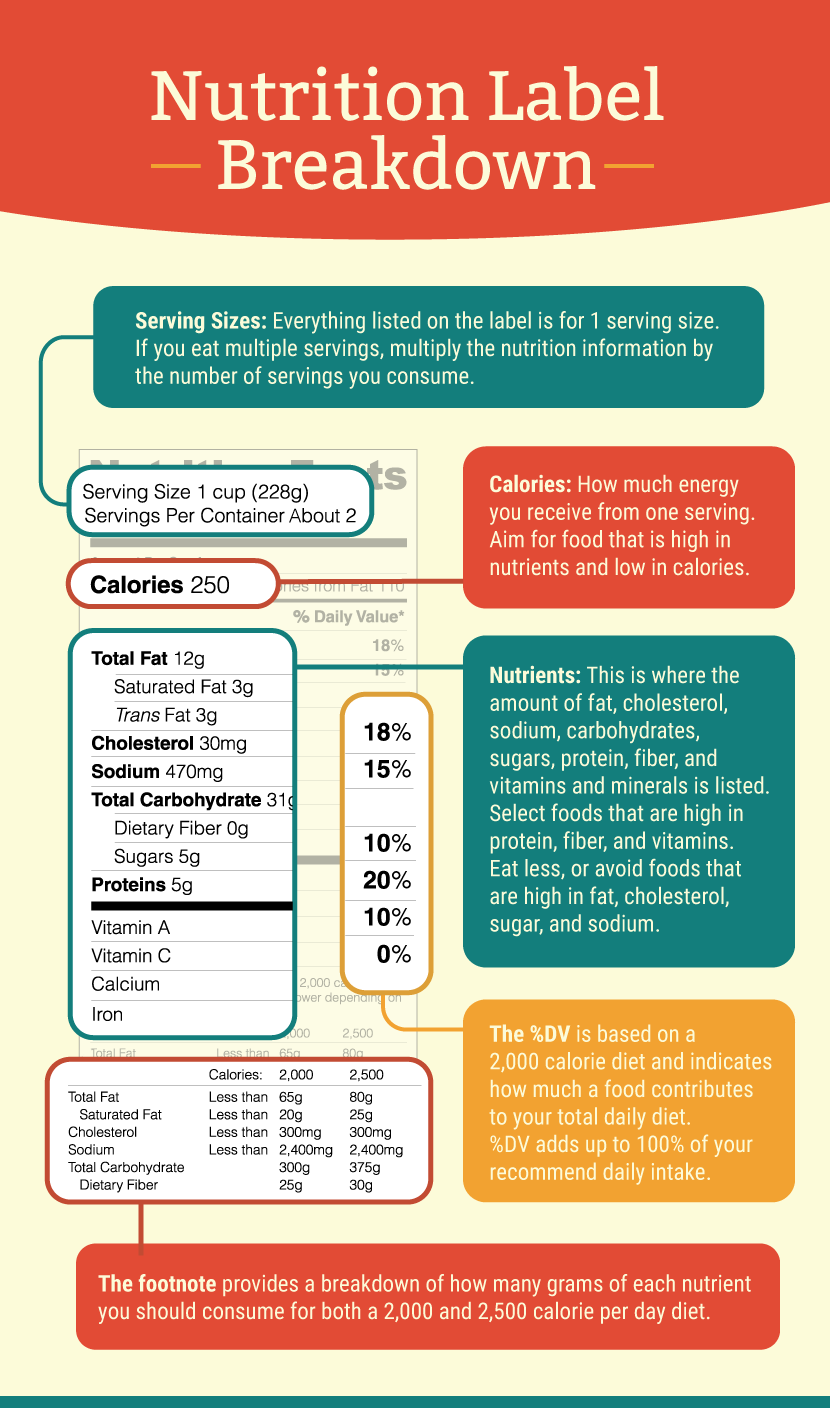
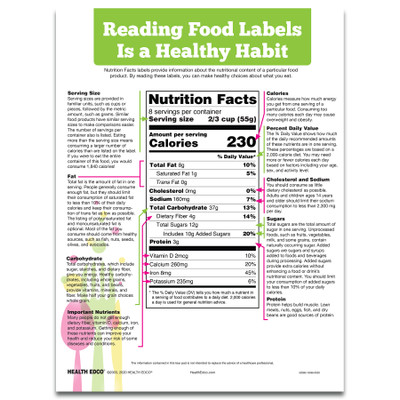



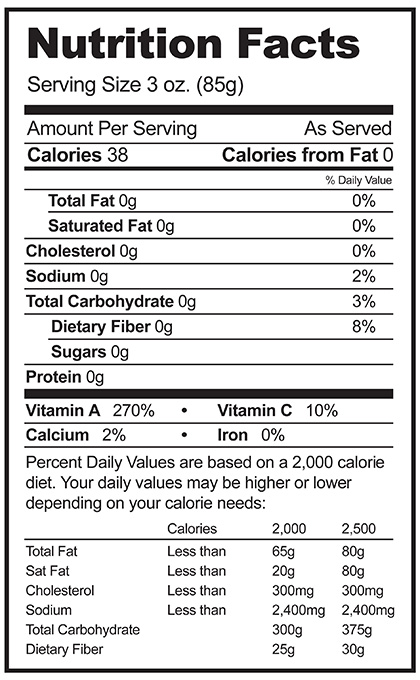
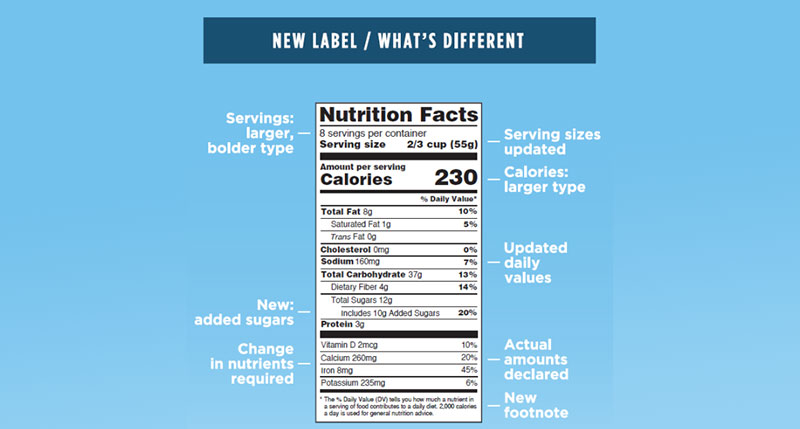
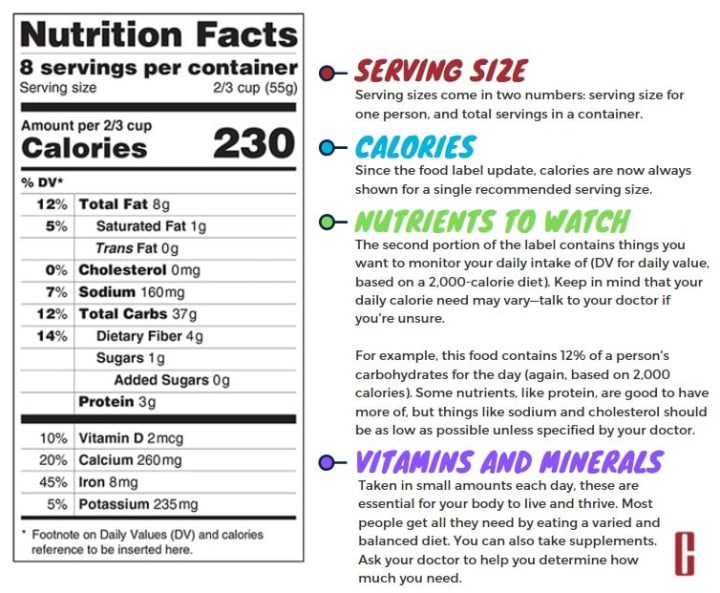

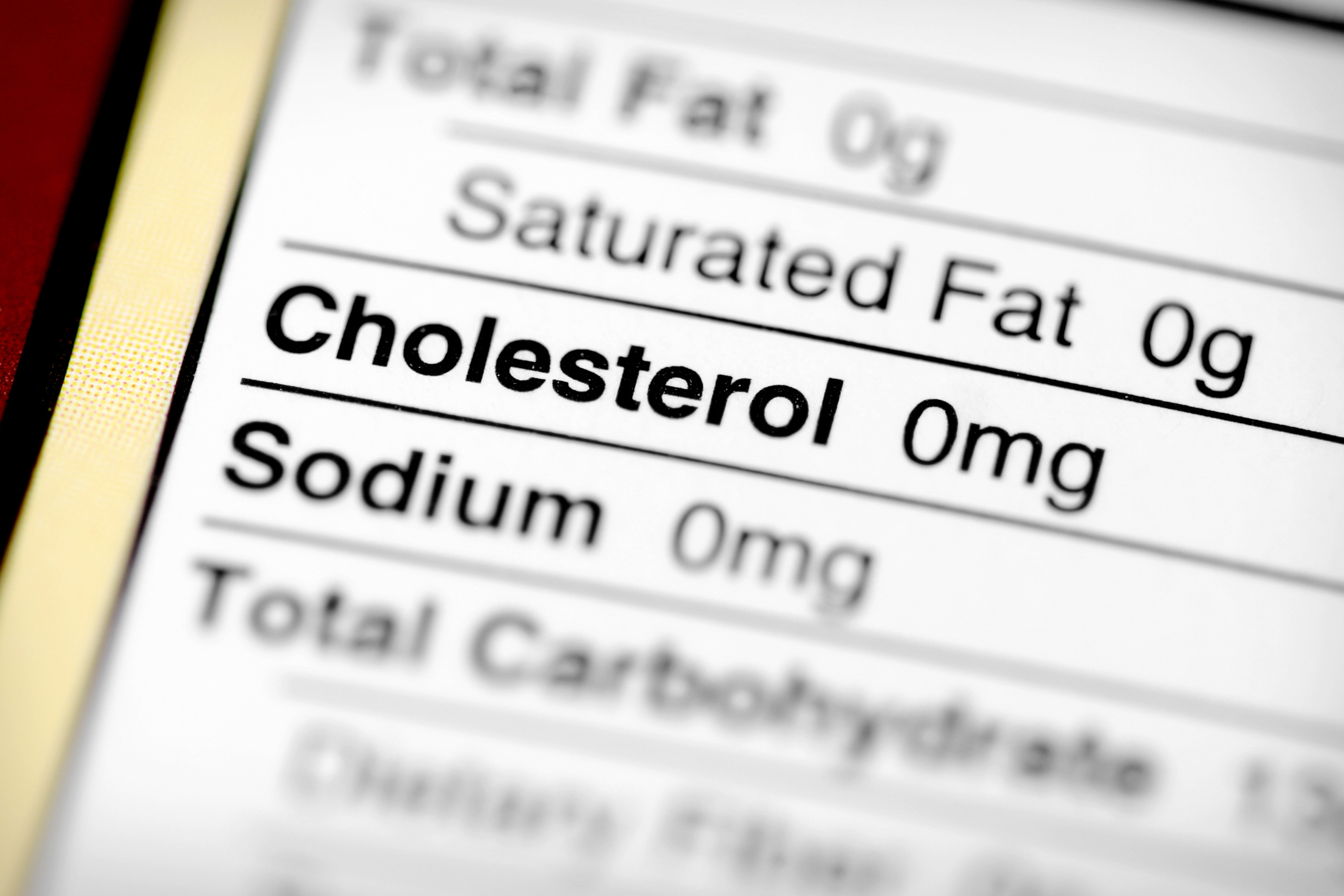
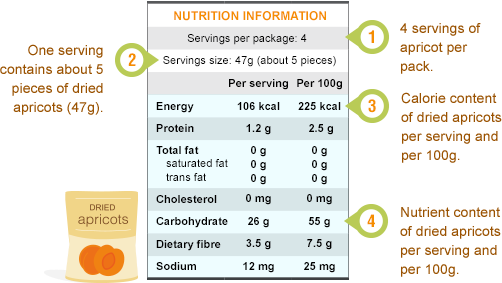
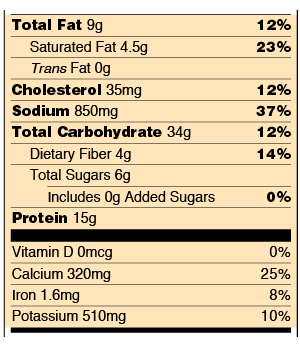






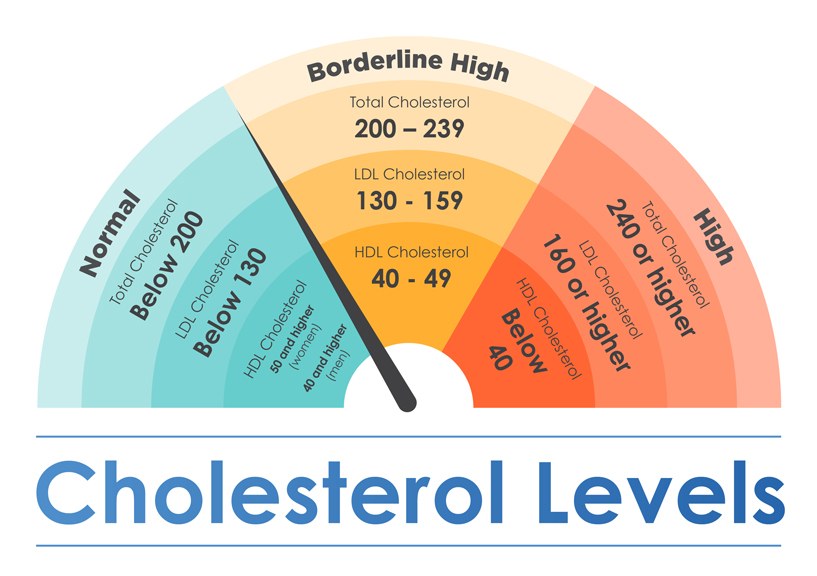

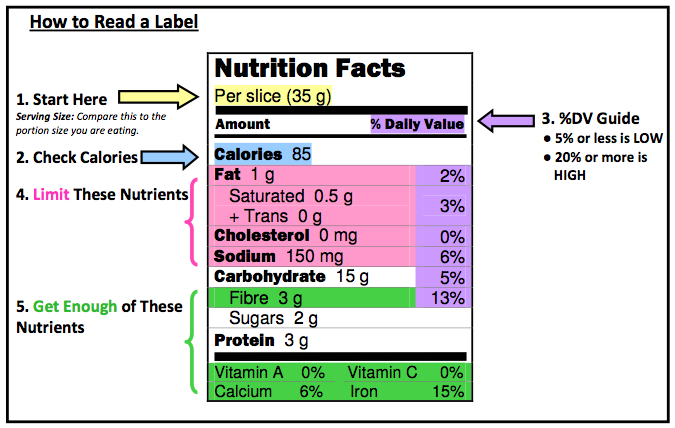
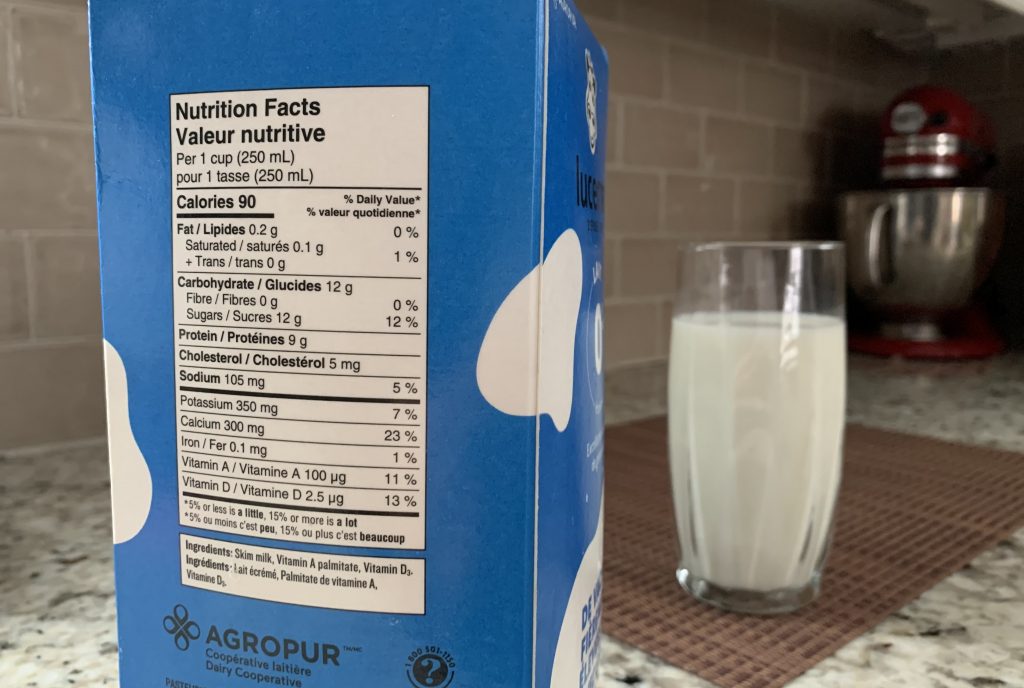
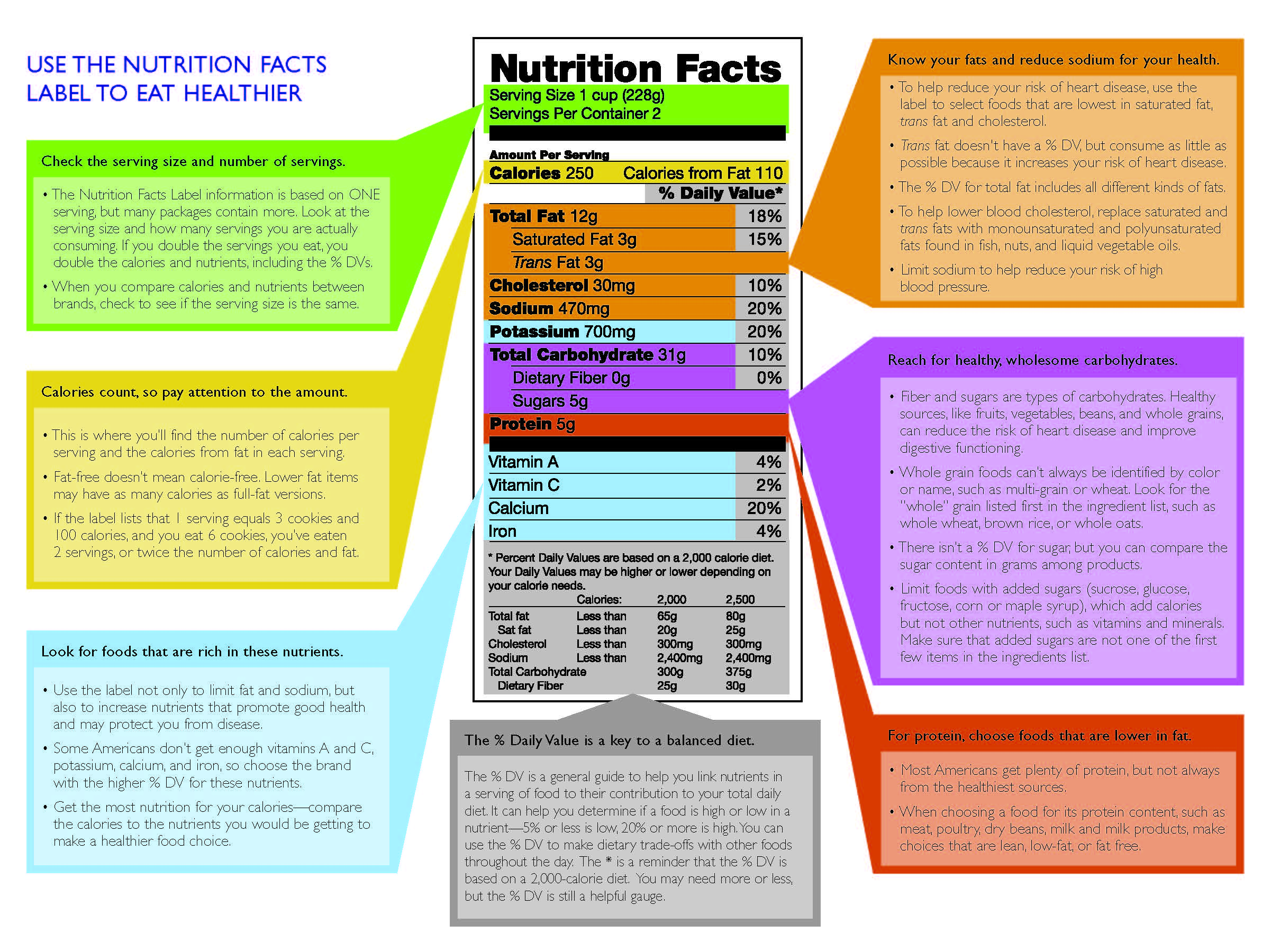

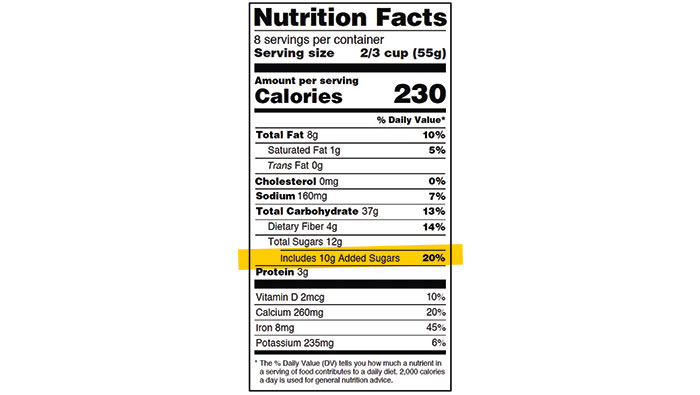
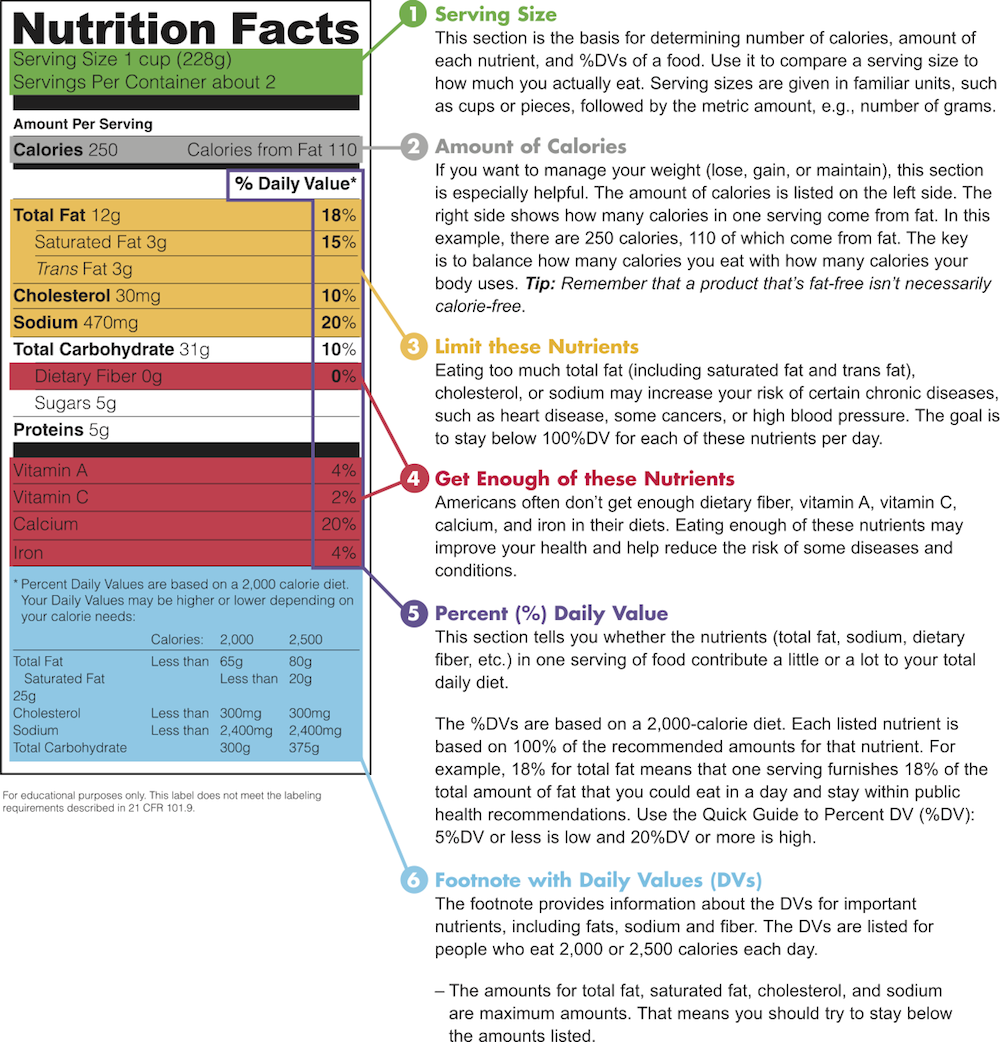


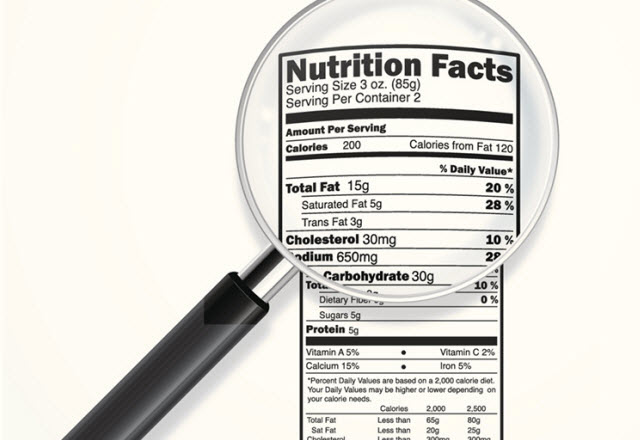

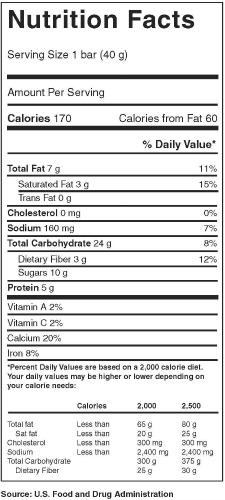

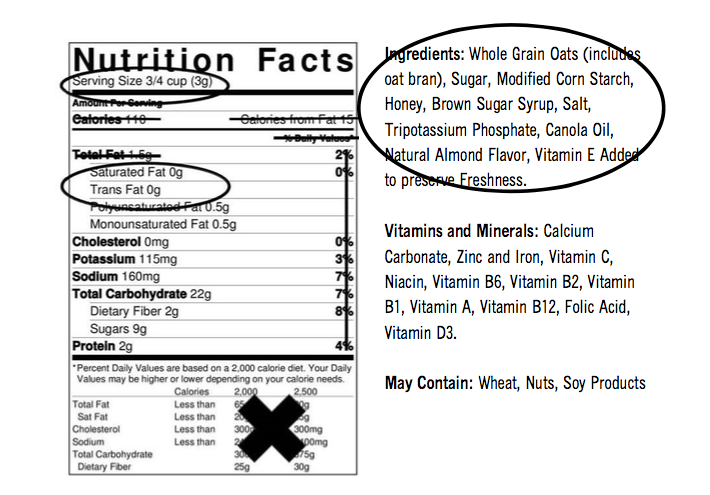


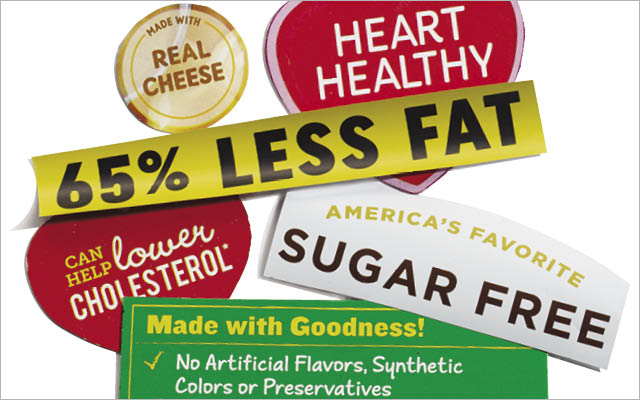
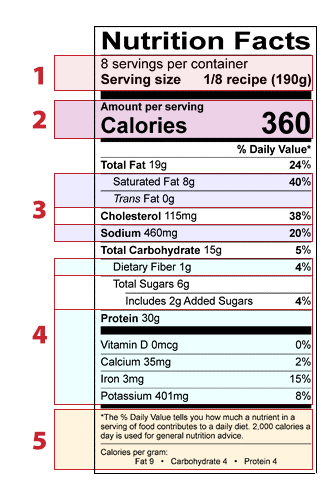
/Untitled-design-1--5755c3703df78c9b46903dab.jpg)
Post a Comment for "44 reading food labels for cholesterol"